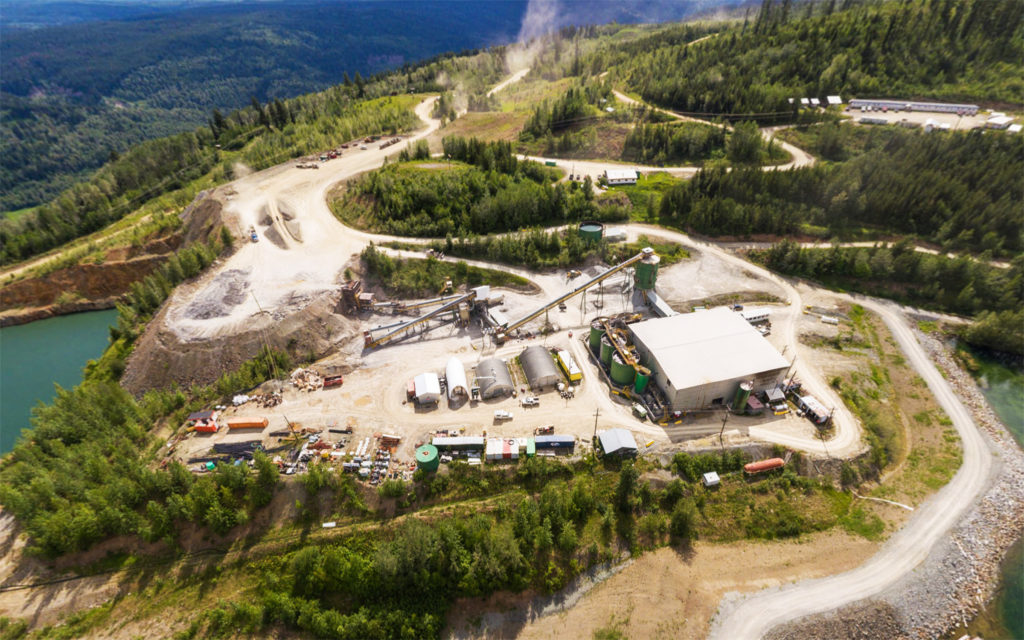Osisko Development shares Cariboo PEA, plans first gold pour Q1 2024


Osisko Development (TSXV: ODV) has released the results from its preliminary economic assessment (PEA) for the Cariboo gold project in central B.C. The study, which examines a large, low-cost underground mine, was prepared by BBA Engineering.
The Cariboo mine is to be a phased development, averaging 75,000 oz. per year to begin and expanding to 286,000 oz. annually after four years. The base case calls for an initial capital requirement of $121.5 million plus an additional $716.1 million for expansion. That would create a mine with a 12-year life, with an initial processing rate of 2,000 t/d growing to 8,000 t/d. The initial gold pour is planned for the first quarter of 2024.
Over the life of the mine, average annual production would be 236,000 oz. at an all-in sustaining cost of US$962 per ounce.
The Cariboo mine has an after-tax net present value at a 5% discount of $764 million and an after-tax internal rate of return of 21.4%. The project has a payback period of six years. The annual after-tax free cash flow is expected to be $112 million over 12 years of commercial production. A gold price of US$1,750 was used in the calculation of these amounts.
The mine site is located southeast of the town of Quesnel. Three key deposits – Cow Mountain, Island Mountain and Barkerville Mountain – are to be mined. The measured and indicated resource estimate totals 27.1 million tonnes averaging 4.0 g/t gold for a total of 3.27 million oz. The inferred resource is 14.4 million tonnes grading 3.5 g/t gold for 1.6 million oz.
Ore will be processed at the existing Quesnel River (QR) mill. Osisko indicated last year that it had successfully removed half of the waste rock from the mill feed using X-ray transmission techniques to sort the ore. The company estimated at the time that treating less material in the mill will save 30% in capital costs and 25% in operating costs. Process water and power consumption in the mill will also be cut by as much as 50%.
Osisko is currently completing the mine ramp in preparation for taking a 10,000-tonne bulk sample.
Additional details are posted on www.OsiskoDev.com.
Comments